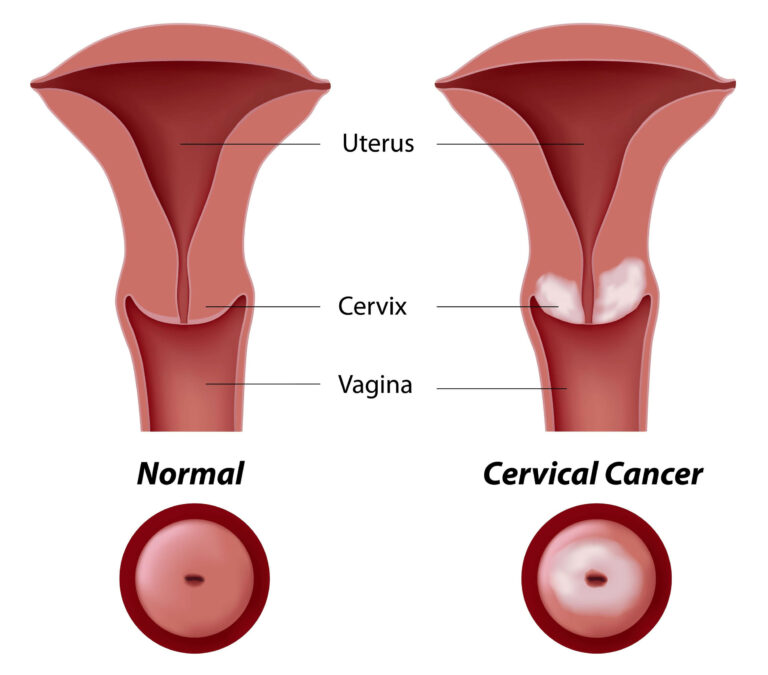Gynaecology Cancer
- Home
- / Oncology
- / Gynaecology Cancer
Uterine cancer:
Uterine cancer can be classified as Endometrial cancer or Uterine sarcoma. However, as a practice, they often consider the terms endometrial cancer and uterine cancer the same. That’s because endometrial cancer makes up about 95% of all cases of uterine cancer. A diagnosis of uterine sarcoma is rare.
Causes of Endometrial cancer: Certain disorders create changes in cells in your uterus. The mutated cells grow and multiply out of control, which can form a mass called a tumour.

Certain risk factors can increase the chances you’ll develop uterine cancer. There are several risk factors for endometrial cancer. Many of them relate to the balance between estrogen and progesterone. These risk factors include obesity, a condition called polycystic Ovarian Syndrome (PCOS) or taking unopposed estrogen (taking estrogen without taking progesterone, too).
The genetic disorder Lynch syndrome is another risk factor unrelated to hormones, Age, lifestyle, and family history.
Diabetes: This disease is often related to obesity, a risk factor for cancer. However, some studies suggest a more direct tie between diabetes and uterine cancer as well.
Obesity (having excess body weight): Some hormones get changed to oestrogen by fat tissue, raising the risk of uterine cancer. The higher the amount of fat tissue, the greater the effect on oestrogen levels.
Ovarian diseases: People who have certain ovarian tumours have high oestrogen levels and low progesterone levels. These hormone changes can increase uterine cancer risk.
Symptoms of endometrial cancer or uterine sarcoma include:
•Vaginal bleeding between two menstrual cycles before attaining menopause.
• Vaginal bleeding or spotting after menopause, even a small amount, could be a significant symptom.
• Lower abdominal pain or cramping in your pelvis, just below your belly.
• thin white or clear vaginal discharge if you’re postmenopausal.
• The effect on oestrogen levels. Early menstruation: If your period started before age 12, your risk for uterine cancer might increase. That’s because your uterus gets exposed to oestrogen for more years.
• Late menopause: Similarly, if menopause occurs after age 50, the risk also increases. Your uterus gets exposed to oestrogen longer.
• Long menstruation span: The number of years menstruating might be more important than your age when periods started or ended.
• Not getting pregnant: People who haven’t been pregnant have a higher risk.
Treatment
Most people with endometrial cancer need surgery. Who needs your particular treatment plan depends on the type of cancer and your overall health. For Uterine cancer treatment in Kanakapura Road at Srishti speciality clinic.
Other treatments you may have include:
• Chemotherapy, which uses powerful drugs to destroy cancer cells.
• Radiation therapy, sends targeted radiation beams to destroy cancer cells.
• Hormone therapy, which gives hormones or blocks them to treat cancer.
• Immunotherapy, which helps your immune system fight cancer.
• Targeted therapy, which uses medications to target specific cancer cells to stop them from multiplying.
Cervical cancer
Cervical cancer develops in a woman’s cervix (the entrance to the uterus from the vagina). Almost all cervical cancer cases (99%) are linked to infection with high-risk human papillomaviruses (HPV), an extremely common virus transmitted through skin-to-skin contact.
When a patient is infected by HPV, the body’s immune system typically prevents the virus from doing harm. However, in a few cases, the virus survives for years. This contributes to the process that causes some cervical cells to become cancer cells.
The risk of developing cervical cancer can be reduced by having screening tests and vaccinations that protect against HPV infection.
Symptoms
- Vaginal bleeding after sexual intercourse.
- Vaginal bleeding after menopause.
- Vaginal bleeding between periods or periods that are heavier or longer than normal.
- Vaginal discharge that is watery and has a strong odour or that contains blood.
- Pelvic pain or pain during sexual intercourse.

Cervical cancer is a growth of cells that starts in the cervix. The cervix is the lower part of the uterus that connects to the vagina.
Cervical cancer can be prevented by taking vaccines against HPV virus.vaccines is recommended from the age of 9-24 years of age for both females and males.
In women who have not received vaccines, a simple OPD based test called as PAP Smear can be performed in periodic intervals to find out cancer at very early stage.
In the event of Cervical cancer.
Treatment of cervical cancer depends on the stage of the disease.Surgery and Radiation therapy are the main modalities of treatment used to treat cervical cancer.In advanced stages of cervical cancer,even chemotherapy will be used to treat cervical cancer.
Ovarian Cancer
Ovarian cancer is the growth of cells that form in the ovaries, the part of the female reproductive system. It contains two ovaries, one on each side of the uterus. The ovaries are about the size of an almond. They produce ova, the eggs and are also responsible for producing hormones called estrogen and progesterone.
In the case of Ovarian Cancer, the cells multiply quickly and can invade and destroy healthy body tissue.
Symptoms of ovarian cancer include frequently having:
• A swollen or bloated tummy with a feeling of heaviness.
• Pain or tenderness in the pelvis the area between the tummy and the hips.
• No appetite or feeling full quickly after eating.
• An urgent need to urinate without being able to hold back and at times increased frequency of urination.

Most of the Ovarian cancers are presented in advanced stages as the disease will not cause any symptoms in early stages.Regular Annual examination and ultrasound pelvis to screen for ovarian tumours is advised.
Ovarian cancer Treatment, more often, involves a dual-step combination of surgical procedure and chemotherapy. For that best treatment for Ovarian cancer in Kanakapura Road at Srishti speciality clinic.
Surgery: Doctors remove cancer tissue in an operation.
Chemotherapy: Using special medicines to shrink or kill the cancer. The drugs can be pills you take medicines given in your veins, or sometimes both.
Meet Our Doctors

Dr V Sreekanth Reddy
Surgical Oncologist

Dr Shivani Chandan
Obstetrician and Gynaecologist
